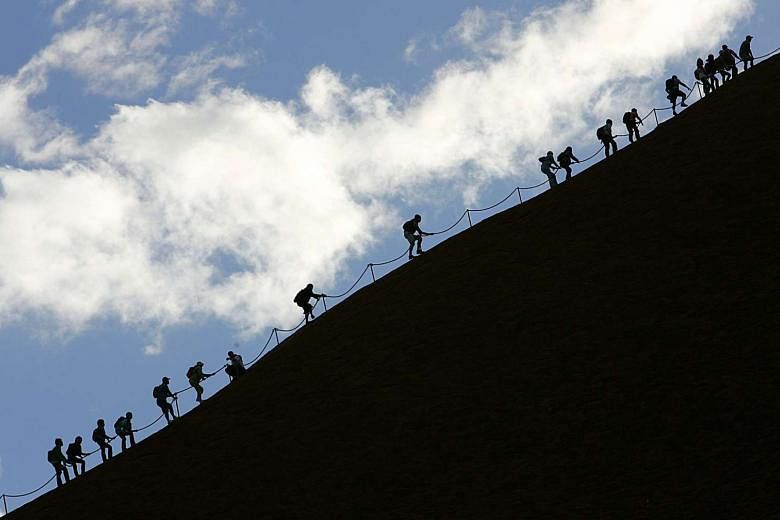In the vast expanse of bush land across northern Australia, the nation's security is in the hands of an unusual military force whose local Aboriginal soldiers are renowned for their unique hunting and survival skills.
Entrusted with surveillance and reconnaissance across much of Australia's remote northern border, the troops of Norforce, or the North-West Mobile Force, patrol a territory covering 1.8 million sq km - the largest area of operations of any military unit in the world.
Norforce was formed in 1981, and as many as 60 per cent of its 640 or so troops are Aboriginal, covering some 100 Aboriginal language groups. Some soldiers speak English only as a third or fourth tongue.
Analysts say the unit has been hugely successful and has helped not only to secure the country's north but also to build strong ties between the military and the Aboriginal community.
A former Chief of Army, Professor Peter Leahy, said the force had enabled the military to draw on the local skills of Aboriginal residents of remote regions. At the same time, the force has helped to boost the skills of the future leaders of Aboriginal communities.
"Norforce has been an outstanding success," he told The Straits Times. "A lot of the benefits have been around nation building - engaging with the indigenous community in the north and helping them to get into the army. The community leaders like it because it helps the future leaders learn leadership skills and learn about themselves."
During peacetime, much of the unit's work is aimed at detecting illegal fishermen and drug runners and preventing entry along the isolated coastline by unauthorised boats. Information about illegal or hazardous activities, or environmental damage from biohazard threats and chemicals, is passed on to border security forces, customs officers and local rangers.
Prof Leahy, now director of the National Security Institute at University of Canberra, said local Aboriginal residents of northern Australia were often deeply familiar with the environment and could spot subtle changes and "report strange doings".
"These guys know the community and land and they know any changes," he said.
The unit operates across the Northern Territory and the remote Kimberley region of Western Australia, and is one of three of the military's Regional Force Surveillance Units, which act as Australia's "eyes and ears" of the north. The other two units, the Pilbara Regiment and 51 Far North Queensland Regiment, also have close relations with local Aboriginal communities and employ local Aboriginal residents.
The force conducts remote armed patrols which can last several weeks and the troops regularly supplement their rations with food found in the bush. Aboriginal soldiers are allowed to return to their home communities for important events like funerals or ceremonies.
The unit's commanding officer, Lieutenant Colonel Matt Campbell, said dangerous wildlife was a constant hazard and patrols were regularly "stalked by saltwater crocodiles". The force operates in extremely desolate environments and faces a threat of dehydration in summer and flooding in winter.
"We provide the eyes and ears, early warning and land surveillance, and reconnaissance of the north of Australia," Lt-Col Campbell told Naval Forces magazine earlier this year.
Norforce arose from an observation unit known as the "nackeroos", which was formed to protect the northern border against the Japanese forces in World War II. Soldiers are trained in weapons handling, navigation, first aid and communications.
Defence analyst Serge DeSilva-Ranasinghe, a research fellow with the Perth USAsia Centre at the University of Western Australia, said Norforce ensured that remote northern Australia was adequately monitored.
"The impetus behind the creation of Norforce was due to concerns that northern Australia's remote Top End region was inadequately monitored," he told The Straits Times. "Apart from their army service, the principal contribution that indigenous soldiers provide to Norforce is their excellent local knowledge of their tribal homelands."

